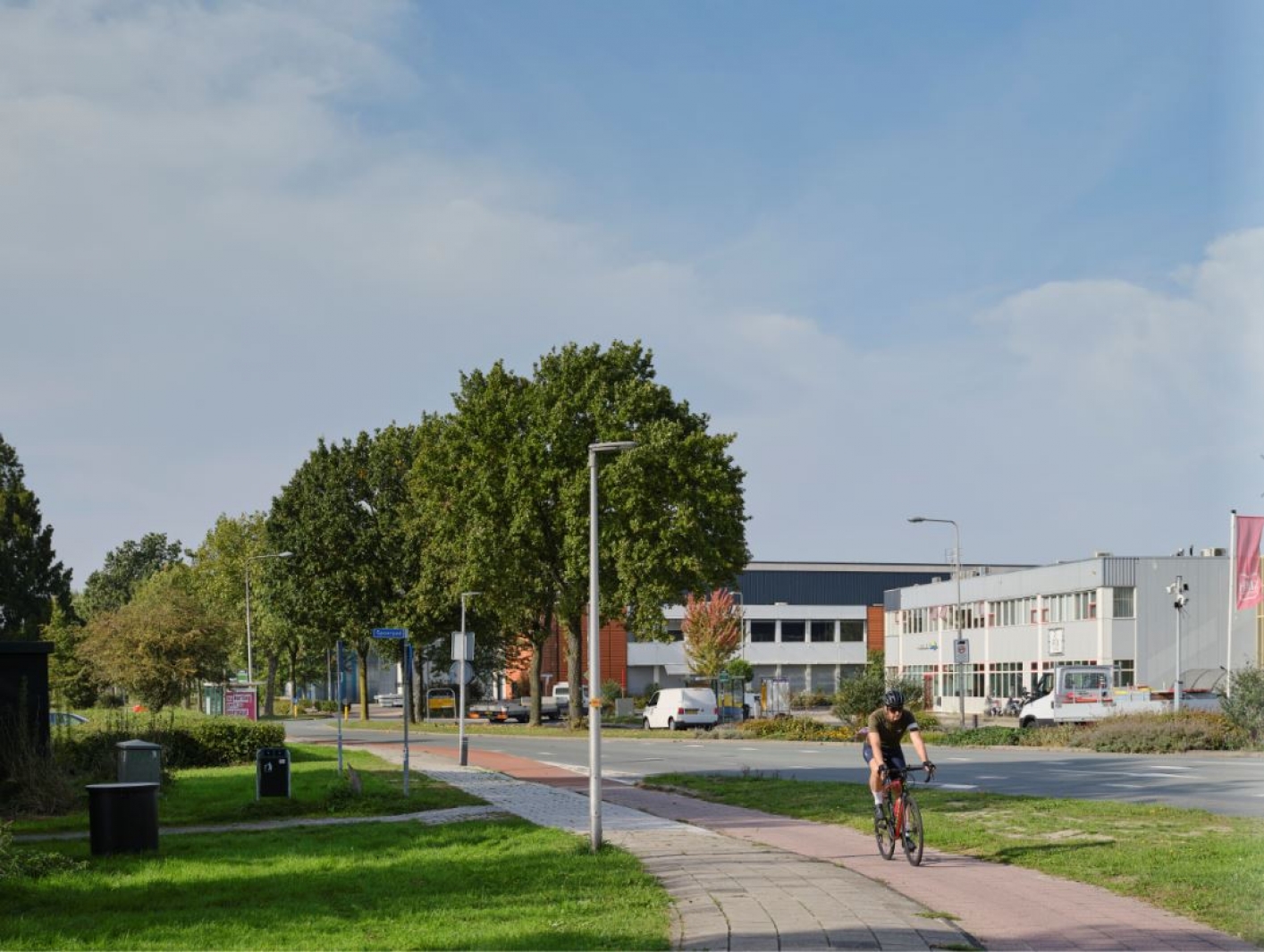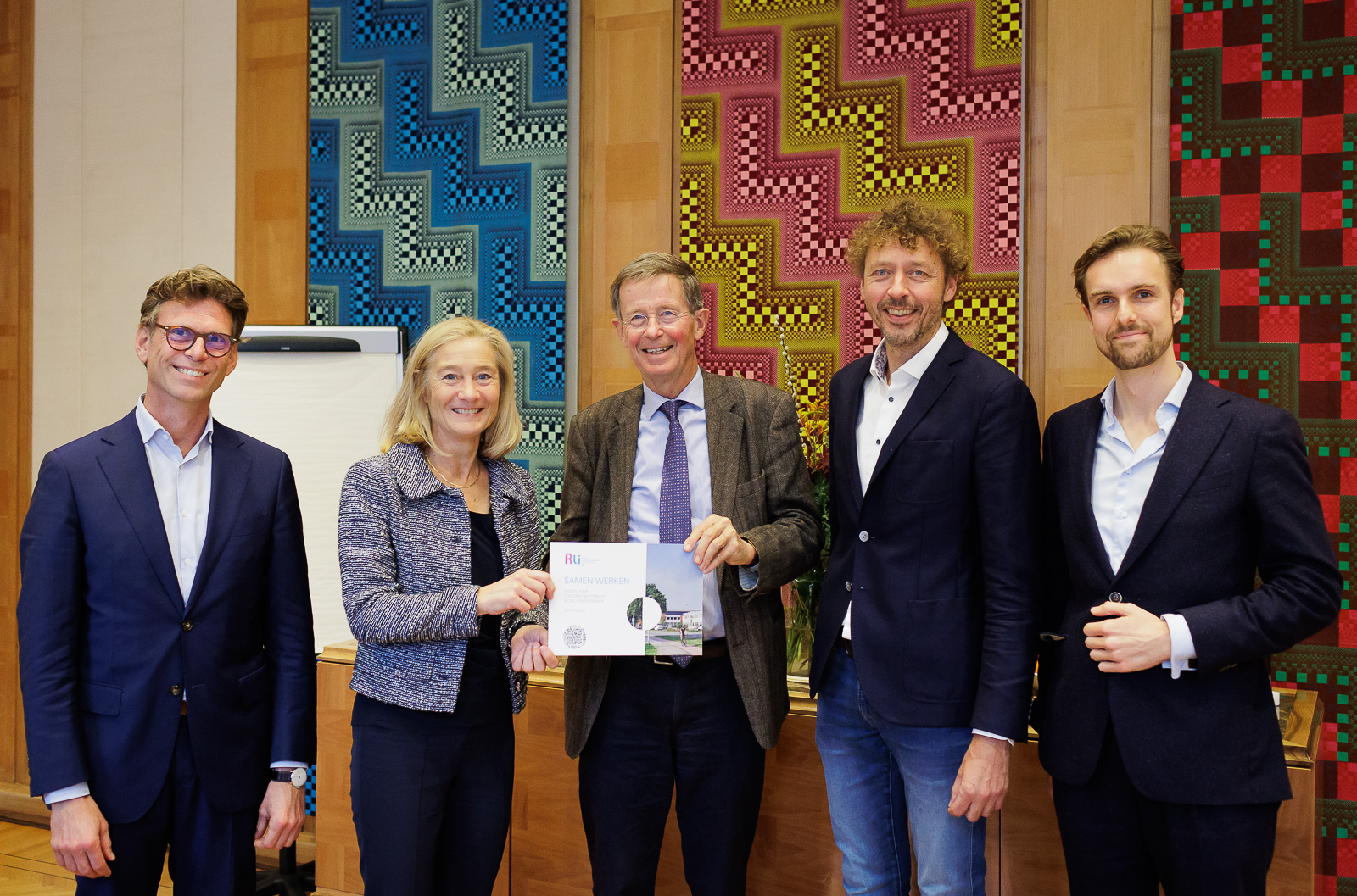
Background and request for advice
Regular business parks play a crucial role in the Dutch economy and society. The 3,400 regular business parks in the Netherlands generate about 30% of GDP and account for 28% of jobs. Overall, they cover 10% of the built-up area of the Netherlands.
Yet they are behind schedule when it comes to sustainability goals. Reducing and greening energy use are lagging behind, as are promoting circularity, climate adaptation, and restoring biodiversity. There are also questions about how efficiently space is used and about maintaining landscape quality.
For a long time, business parks received relatively little attention – unlike industrial clusters (heavy industry), for example. But recently there has been a growing focus on business parks on the part of the Dutch state, provinces, and municipalities. However, that focus is mainly on the landscape effects of large-scale distribution centres – more and more “big boxes” – and the competition for space between business parks and other functions that require space, such as housing. There is no policy aimed at making business parks themselves more sustainable, integrating the various sustainability challenges. This is a missed opportunity, since the unique character of business parks, namely the location of multiple, different types of businesses in close proximity to each other, offers major opportunities to accelerate sustainability improvements for businesses and society.
The main question addressed in this advisory report is “What policies and instruments can be used to accelerate efforts to improve the sustainability of business parks and the businesses located there? And what role should central government, other authorities, market players and society play in this?”
Explanation
Like the rest of the Netherlands, businesses need to become more sustainable. Sadly the progress being made in this area is too slow. This is understandable, as many business owners have their hands full running their business. On top of this, business owners are increasingly facing scarcity of raw materials, grid capacity, human resources and space.
Sustainability is part of the solution to many of these problems. The business park is a perfect level of scale to help business owners do this while at the same time accelerating the Netherlands' sustainability efforts. Policies that exploit these opportunities are currently lacking.
Businesses can take some measures independently, such as optimising business processes. But other measures require cooperation. Take sustainable electricity generation. The Dutch electricity grid is overcrowded, making it increasingly difficult for businesses to purchase power and supply sustainably generated power. An energy hub makes businesses less dependent on the grid. Businesses can use the hub to supply self-generated energy to each other and collectively store surpluses. Both the businesses and society profit from the energy hub: businesses by making their operations more sustainable and society by preventing grid congestion and accelerating the energy transition.
Such measures require organised cooperation between businesses. Unfortunately, only 20% of regular business parks have some form of organisation. Business owners face more obstacles, such as the need for substantial investment and in many cases a lack of clarity regarding what the government expects from them now and in the future. Support from the municipality is often limited due to lack of expertise and capacity. In short, the government needs to offer more and better support to business owners.
The Rli makes three recommendations to accelerate efforts to improve the sustainability of business parks.
Formulate a future vision
Outline a future vision of sustainable business parks, linked to measurable interim goals with a clear timeline. Develop a sustainability label for business parks. This will make life easier for business owners by clarifying complex laws and regulations.
Make forming an organisation attractive and ultimately mandatory
Encourage organised cooperation through tax advantages, subsidies for collective sustainability projects and funding for joint hiring of a park manager. Eventually make it a legal requirement for business owners at a business park to join an Owners and Users Association.
Ensure a clear division of roles
Let the Ministry of Economic Affairs and Climate Policy set the national frameworks on behalf of central government. Give the provinces a central role and let them take regional control. Municipalities, as the competent authority, are the designated first point of contact for business parks. Turn Regional Development Agencies (RDAs) into centres of expertise for improving the sustainability of business parks.
Publication date
The advisory report was presented to the Minister of Economic Affairs and Climate Policy, Micky Adriaansens, on 31 October 2023. The advisory report was also presented to the Minister for Climate and Energy Policy, Rob Jetten, and the Minister for Housing and Spatial Planning, Hugo de Jonge.

On October 31 2023, Minister of Economic Affairs and Climate Policy, Micky Adriaansens took receipt of the advisory report “Working together: Opting for future-proof business parks”. From left to right: Evert Nieuwenhuis (Rli project leader), Minister Micky Adriaansens (EACP), Jan Jaap de Graeff (Rli chair), Erik Verhoef (Rli Council member and committee chair) and Yourai Mol (Rli Council member). Photo: Fred Ernst.
Meeting on Thursday 7 December 2023, 2:00 p.m. - 5:00 p.m.
The Rli organised a meeting on its advisory report on the afternoon of Thursday 7 December in The Hague. This meeting was in Dutch.
Further information on the programme and speakers is in Dutch on the Rli-website.
More information
For more information about the advisory report or to give your reaction to it, please contact the project leader Evert Nieuwenhuis at evert.nieuwenhuis@rli.nl, or on +31 (0)6 2192 6501